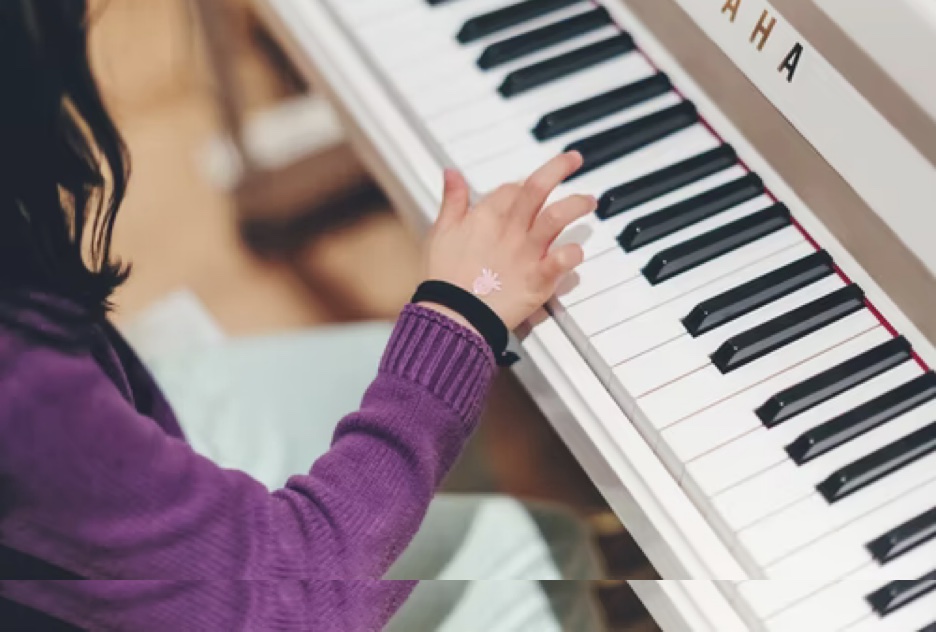The piano is a beautiful, mystical instrument that is so versatile, you’ll find it in almost all genres of music. Learning it, however, is far from mystical and is, in fact, very challenging and full of hurdles on the way to completely excelling at it. That’s why many people recommend teaching it to children from a young age so they can take their time practicing it. Yet, it can be a complex instrument to learn for a child, and therefore hard to keep them motivated and willing to improve their skills. Parents play the biggest part, after the piano instructor, in keeping their child’s skills constantly improving. Here are some ways you can use to help you out:
1 – Expose Them To Different Music
Nobody can perform well in something if they don’t know what their effort and time spent can turn into. That’s why you need to show your child what they can achieve by exposing them to all kinds of music out there. Seeing how versatile the piano is as an instrument can motivate them to be creative with their playing and give it more meaning. Most parents stick to the classical side of the instrument, and while that’s still important, you should still show them all the sounds that can be achieved with it, like blues and jazz music.
2 – Set Regular Practice Time
Making playing the piano part of their daily routine is extremely important for developing their skills. The time of the day does not matter, as long as you stick to it and give your child a say in it so that it’s a time when they are in the mood to play. The only thing that needs to be set, however, is the time of practice, not its duration. Forcing your child to sit at the piano for 40 minutes will do little to improve their skills if they lose interest. 15-minute practice sessions that are productive can go a longer way than those long, dragged-out ones.
3 – Create Small Goals
Speaking of establishing a sense of achievement by showing kids what they can do, you should also do so by setting small milestones to reach. You should never go overboard with setting goals; ensure that they are easy to reach thereby instilling a greater sense of achievement each time. You can set goals like using the right-hand position throughout the entire practice, playing the 6 measures without any mistakes, or even maintaining the right posture throughout practice. Put together a chart of these small goals to keep track of progress.
4 – Establish Reward System
You can’t have a chart of goals and milestones without something waiting at the end once it’s actually achieved. If you want your child to improve their piano skills, they’ll need to get something in return for all their hard work. In the same way that the goals you set don’t have to be big, neither do the rewards you give. They don’t need to be over the top or flashy unless the achievement is major. It can be as simple as a sticker on their chart, extra screen time, or just some ice cream after dinner. All children love this type of motivation and you will definitely see results with the right rewards.
5 – Find The Right Instructor
The choice of instructor for your child’s piano lessons goes a long way in the development of their skills. Not only do you need someone who is professionally skilled but who is also equipped to teach children. When it comes to piano lessons Singapore based professionals recommend finding an instructor who is fun and inspiring and still teaches essentials like piano theory. Don’t be afraid to try out more than one instructor until you find the right one. It’s all about the chemistry.
6 – Set Time To Play Outside Practice
Having your child remain in love with playing the piano instead of it turning into a task that they dread will definitely affect their skills. To keep the passion alive, decide to cancel practice and call it playing around on the instrument as they please. You can let them choose their favorite song to play, compose their own song, or make up a game involving the piano. Just giving them space to be creative outside of practice will keep them interested and motivated, and still enhance their skills.
7 – Promote A Supportive Environment At Home
Everyone needs support while they are learning something new so that they are motivated to keep going, children even more so than adults. That’s why you need to keep an atmosphere of encouragement and support at home so they can keep going with the same enthusiasm they started with. Not only that, you need to set a special place at home for practice away from all noise and distraction so that they feel like their practice time is respected and matters to the family.

8 – Hold Regular Concerts At Home
Another way your child can improve their piano skills is by having make-shift concerts they can practice for as they would for the real thing. Having weekly or monthly concerts at home where your child has the opportunity to take center stage and shine will make them work harder in the time leading up to it. When you invite family members and friends it will even add more meaning and weight to it, encouraging them to enhance their skills. This could specifically help with shy children to help prepare them for when there’s an actual recital or competition where they have to perform in front of an audience.
There you have it. These simple tips can go a long way in helping your child improve their piano skills and excel. While it’s important to invest in your child’s skills and potential, it’s also essential that you look out for their mental health. If you feel they are stressing out or start acting out due to the pressure of practice, you have to recognize that they need a break. You don’t want to overwork your child or cause their love for learning the piano to diminish with the pressure of excelling at it.












